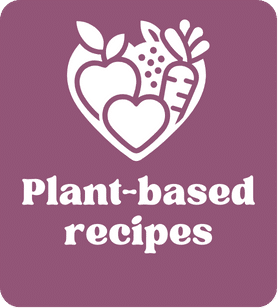
In this article you’ll learn:
Cinnamon, also known as Dalcini, Rou Gui, and its botanical name Cinnamomum zeylanicum, is a Lauraceae (Laurel) family member. There are two common types of cinnamon — Ceylon and cassia (Saigon is a cassia variation). Although cassia is the most common variety, Ceylon is known as “true” cinnamon (1). Cassia cinnamon trees originated from Asia and can grow 66 feet tall, producing small yellow or green (sometimes reddish-pink) flowers and berry fruits (2). However, Ceylon comes from the Cinnamomum verum tree, originating in Sri Lanka and Southern India (3).
Cinnamon trees can be propagated from cuttings. Young trees should be cut back to ground level every second year, and the bark can be stripped from the emerging shoots (stem and its appendages, such as leaves, buds, and flowering stems) the following year before drying. If you plan to forage for cinnamon, always harvest ethically. Never collect anything from private property without direct permission. When harvesting from public spaces, consider the impacts on native plant populations. Due to the uncertainty of surrounding plants, be careful not to disturb them as they could be an endangered or threatened species. Always be kind to the earth and only harvest what you need.
According to one of my favorite herbal resources, the Encyclopedia of Herbal Medicine, cinnamon’s key constituents are volatile oil (containing cinnamaldehyde and eugenol), phenolics (procyanidins), coumarins (C. cassia), and mucilage. Some of its herbal actions include:
- Antidiabetic: prevents or alleviates diabetic symptoms.
- Antifungal: combats fungal infections.
- Antimicrobial: destroys or inhibits microorganisms.
- Carminative: relieves digestive gas and indigestion.
- Warming stimulant: increases alertness, energy, and nervous system activity.

Research-Backed Health Benefits of Cinnamon
Cinnamon dates back to 2800 BC when our ancestors used it for anointment, embalming, and various ailments. Back then, cinnamon was rare and valuable, often regarded as a gift fit for kings in Ancient Egypt (1). Today, cinnamon is recognized for its many health benefits, including, but not limited to:
Rich in Antioxidants
Studies have found cinnamon acts as an antioxidant. Antioxidants can help fight damage from harmful free radicals. The buildup of free radicals has been linked to chronic diseases, such as cancer and heart disease (4). A systematic review and meta-analysis of randomized controlled trials demonstrated significant increases in blood antioxidant levels and reduced inflammatory markers with cinnamon supplementation (5). Studies have shown that cinnamon displays such robust antioxidant effects that it’s even used as a natural food preservative (6).
Antibacterial Properties
An antibacterial property is when a substance, or in this case, an herb, can destroy or suppress the growth and reproduction of bacteria (7). Studies suggest cinnamon can inhibit the growth of certain bacteria, including Listeria and Salmonella (8,9). Cinnamon’s antibacterial properties are believed to be due to its bioactive phytochemicals, cinnamaldehyde, and eugenol (10). Studies have found the antimicrobial effects of cinnamon may even help prevent tooth decay and reduce bad breath (11).
Antifungal Properties
Aside from antibacterial and antimicrobial properties, cinnamon has antifungal properties. An antifungal property is when a substance, or in this case, an herb, can fight the growth of fungi pathogens that could harm your health, such as ringworm, athlete’s foot, tinea versicolor, toenail fungus, and jock itch (12). Studies confirm cinnamon’s antifungal effects against Candida albicans and Candida glabrata (13). Additionally, (in-vitro) test-tube studies suggest that cinnamon oil could help kill certain fungi, especially those that cause respiratory tract infections (14).
Antiviral Properties
Cinnamon also has antiviral properties. An antiviral property is when a substance, or in this case, an herb, can kill a virus or suppress the virus’ ability to replicate, multiply, or reproduce (15). One study found cinnamon extracted from cassia varieties was beneficial against HIV-1 (16). Another study demonstrated cinnamon’s ability to protect against other viruses, including influenza and dengue viral infections (17).
Anti-Inflammatory Properties
Cinnamon is well-known for its anti-inflammatory properties due to its antioxidant compounds, which can also reduce inflammation, especially from free radical damage. Chronic inflammation has been linked with many diseases, such as type 2 diabetes, asthma, and certain cancers (18). Studies demonstrate that cinnamon’s antioxidants have potent anti-inflammatory properties (19,20). One study found that cinnamon bark essential oil significantly inhibited the production of several protein biomarkers involved in inflammation and tissue remodeling (21).
May Help Control Blood Sugar Levels
As of 2020, 34.2 million (1 in 10) Americans have diabetes, and another 88 million (1 in 3) Americans have prediabetes (22). On the bright side, research shows cinnamon has antidiabetic properties (23). Studies have found cinnamon interferes with numerous digestive enzymes that are responsible for slowing the breakdown of carbohydrates in your digestive tract (24). Additionally, studies have found a compound in cinnamon may mimic the effects of insulin, improving the uptake of sugar into the cells (25). Furthermore, some studies suggest that cinnamon may reduce insulin resistance (26,27).
May Promote Heart Health
Unfortunately, heart disease is the world’s number 1 cause of death (28). If you read my post, The Importance of Heart Health, you know that due to the incredibly complex determinants of heart disease and various possible contributions, it’s hard to pinpoint an exact way to prevent it. Still, you can at least take steps to lower your overall risk. Cinnamon may be an answer, as it’s demonstrated significant blood pressure reduction when consumed consistently for at least eight weeks. It has also been proposed as a hypotension supplement (29,30).
Blood pressure aside, one review found supplementing with at least 1.5 grams of cinnamon per day in people with metabolic disease reduced triglycerides, total cholesterol, LDL (bad) cholesterol, and blood sugar levels (31). Another review demonstrated cinnamon’s ability to lower triglyceride and total cholesterol levels (32).
May Support Brain Health
Brain health refers to cognitive health, motor functions, emotional functions, and tactile functions. Brain functions may decrease across several areas as we age due to neurological conditions like Alzheimer’s, Parkinson’s, or even amyloid plaques (33). Many studies have been conducted in test tubes, animals, and even humans surrounding the possibility that cinnamon may aid various brain disorders, especially neurodegenerative diseases.
Neurodegenerative diseases affect millions of people worldwide and are characterized by progressive loss of the structure or function of nerve cells (34). Alzheimer’s and Parkinson’s are the most common neurodegenerative diseases (35). In animal studies, cinnamon helped protect neurons, normalized neurotransmitter levels, and improved motor function in mice with Parkinson’s disease (36). Additionally, certain compounds found in cinnamon have demonstrated the ability to inhibit the buildup of a protein called tau in the brain, one of the hallmarks of Alzheimer’s disease (37,38).

Cassia Vs. Ceylon Cinnamon
As stated earlier, there are two common types of cinnamon – cassia and Ceylon. Cassia, or regular cinnamon, is the most common variety found in supermarkets. Cassia can be harmful in large amounts, while Ceylon cinnamon, or “true” cinnamon, is brimming with health benefits. Let’s take a deeper look at the differences between the two types of cinnamon.
Cassia Cinnamon
Cassia cinnamon (Cinnamomum aromaticum), known as Chinese cinnamon is native to East and South Asia (39). It tends to be dark brown-red, with a thicker, coarser texture, scroll-like hollow sticks, and a more robust, bitter flavor (40).
Historically, cassia cinnamon has been used in Chinese medicine (41). Today, cassia is more commonly used for cooking, especially savory dishes. Cassia has a few medicinal benefits, like antimicrobial, anti-inflammatory, and antihyperglycemic (blood glucose-lowering) properties (42,43,44). Aside from these benefits, some risks are associated with cassia, especially when using large doses, like making medicine.
Cassia contains high levels of coumarin, about 7-18 milligrams per teaspoon (45). Toxicology and risk assessments demonstrate a tolerable daily intake of about 0.05 mg of coumarin per pound of body weight (46). In other words, 7.5 mg of coumarin is the tolerable daily intake for a 150-pound person, yet a teaspoon of cassia cinnamon contains upwards of 18 mg.
Acetaminophen has been linked to having liver-damaging effects, and, interestingly, cassia cinnamon can be just as harmful. Consuming too much coumarin can be detrimental to liver health, inducing liver toxicity and damage (47,48). It doesn’t take long for cassia cinnamon to cause liver damage. In one case study, an older woman developed a sudden liver infection, including liver damage, after one week of supplementation (49).
Aside from liver damage, cassia cinnamon’s high levels of coumarin may also increase the risk of cancer. In animal studies, consuming too much coumarin has resulted in the development of cancerous tumors in the liver and lungs (50,51). Although the cancer-causing properties of coumarin have only been studied in animals, some scientists believe over time, coumarin can damage human DNA, ultimately increasing the risk of cancer (52).
Interestingly, cassia cinnamon is regulated or banned in other countries (53). Meanwhile, the FDA banned coumarin as an additive in the United States, but cassia cinnamon is not regulated (54). Although cassia is much cheaper and is considered safe in moderation like food, I recommend using Ceylon cinnamon, especially when making medicine.
Ceylon Cinnamon
Conversely, Ceylon cinnamon (Cinnamomum zeylanicum) comes from the Cinnamomum verum tree, originating in Sri Lanka and Southern India (3). Ceylon cinnamon tends to be tan, has a less coarse texture, perfect circle-shaped, multilayered sticks, and a sweeter flavor (40).
First and foremost, Ceylon cinnamon contains trace amounts of coumarin (55). In other words, there is no need to worry about liver damage or an increased risk of cancer—actually, quite the opposite. Unlike cassia, which may increase cancer risk, Ceylon has anti-cancer properties.
Although the evidence is limited to test-tube and animal studies, studies suggest that cinnamon extracts have anti-cancer properties (56,57,58). In vitro, cinnamaldehyde reduced the growth and spread of ovarian cancer cells (59). In animal studies, cinnamaldehyde blocked the expression of some proteins involved in cancer growth in mice with ovarian cancer (60). A final study concluded that cinnamaldehyde is a potential novel drug for treating and preventing breast cancer (61).

Safety Information, Contraindications & Interactions
Like always, it’s essential to understand the safety profile of herbs, even if they are natural substances like cinnamon. With that said, let’s go over the basics regarding Ceylon cinnamon. Surprisingly, the mainstream has no significant concerns about cinnamon. They warn of irritation, allergies, low blood sugar, and their potential to affect how some medications work (62).
According to trusted herbalist Richard Whelan, cinnamon in food, beverages, or herbal extracts isn’t problematic for anyone of any age, including pregnant or breastfeeding women. However, cinnamon as an essential oil or concentrate needs to be treated with great caution as it contains cinnamic aldehyde, a potent contact sensitizer that can cause allergic reactions to the skin or mucous membranes (63).
When it comes to cinnamon essential oil, according to aromatherapist Wendy Robbins, essential oils should never be taken internally or applied undiluted. Wendy Robbins indicates that the bark and the leaf oil are low risks for mucous membrane irritation, may inhibit blood clotting, and pose a drug interaction hazard. She mentions cinnamon bark oil may cause embryotoxicity and is contraindicated in pregnancy and breastfeeding. She warns there is a high risk of skin sensitization with the bark oil and recommends a dermal maximum of 0.07% for the bark oil and 0.065% for the leaf oil (64). Neither cinnamon bark nor leaf is safe for children, dogs, horses, pregnancy, or breastfeeding.
How to Use Cinnamon & Product Recommendations
When I make homemade herbal remedies, I try to buy herbs locally. When buying locally isn’t an option, I typically purchase from one of the following brands:
Looking for additional herbal suppliers? Check out my post, 3 Ways to Source Herbs.
I have yet to have the opportunity to make herbal remedies with cinnamon, although I cook with it occasionally. Nonetheless, to my understanding, the best preparation methods when working with cinnamon include the following:
- Herbal capsules – learn how to make herbal capsules
- Herbal infusions – learn how to make an herbal infusion
- Herbal syrups – learn how to make an herbal syrup
- Herbal tinctures – learn how to make an herbal tincture
If making your home remedies isn’t quite your thing, I recommend a few premade herbal products, including:
- Gaia Herbs’ Adrenal Health Nightly Restore supports those feeling tired and run down. Nourish the adrenals overnight for sleep and stress support with ashwagandha, magnolia bark, cordyceps, lemon balm, and cinnamon.
- Plant Therapy’s Cinnamon Bark Essential Oil can help during seasonal illnesses. It is also a great addition to essential oil blends, as it adds a warm, spicy aroma to other essential oils in the citrus, mint, or wood families.
- Plant Therapy’s Cinnamon Leaf Essential Oil is a perfect contender for getting in the holiday spirit. For many years, Cinnamon Leaf has also been used as part of a cleaning blend or to help soothe aching pains associated with aging.
- The Brother’s Apothecary’s CBD Chai Awakening Tea is crafted with simple ingredients like Darjeeling tea plus spices, including ginger, cinnamon, cardamom, cloves, and nutmeg. Each cup provides a full-bodied, spicy, and tantalizing drinking experience. It’s more spicy than sweet, with a unique toasted flavor that’s among the most popular at The Brothers Apothecary.
- The Brother’s Apothecary’s CBD Horchaga is blended to taste like your traditional horchata, with a smooth rice flavor alongside sweet cinnamon, nutmeg, and vanilla. Although horchaga includes a whopping 1 gram of bioavailable chaga mushroom per serving (with the antioxidant equivalent to about 500 blueberries), you won’t get any gritty bitter taste.
- The Brother’s Apothecary’s CBD Lover’s Latte is a superfood creation made with nutty coconut milk, rose petals, Ashwagandha, cocoa, and cinnamon. This latte mixes into a uniquely vibrant pink tonic and is the perfect couple’s companion. It’s caffeine-free, and the potent herbal ingredients inspire a sense of focus, energy, and clarity.
- The Brother’s Apothecary’s CBD Pumpkin Chai Tea is a seasonally spectacular blend of organic black tea, traditional and delicious Chai spices, and real pumpkin. It offers a robust, tantalizing drinking experience reminiscent of fall (but delicious all year round!).
- The Brother’s Apothecary’s CBD Spiced Cacao is a uniquely rich, distinctly spiced cocoa inspired by traditional recipes. It is made with Peruvian cacao, coconut, bold spices, and a touch of sweetness to make a uniquely dense superfood drink.
Product Disclaimer
Product recommendations are affiliate links. I do not own or make these products. Recommendations are selected according to ingredients at the time article was written and can change at any time. I encourage you to double-check ingredients and research each company to ensure they’re suitable for your journey.
How to Join The Holistic Hipppie Community & Connect
If you’d like to join a welcoming online community dedicated to making more mindful decisions surrounding holistic alternative approaches with a growing database of natural health resources, I invite you to join our Facebook group, The Holistic Hipppie Community. Looking for a more personalized connection? Feel free to follow me on social media, where I post my holistic health journey in real time.
📧 Subscribe to my email list to get wellness tips, printable resources, nourishing recipes, and occasional updates delivered straight to your inbox!
















Leave a Reply